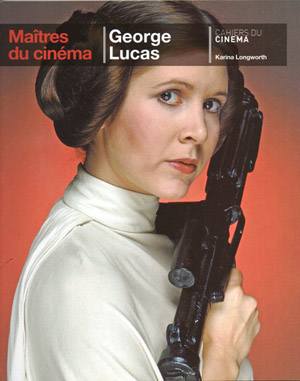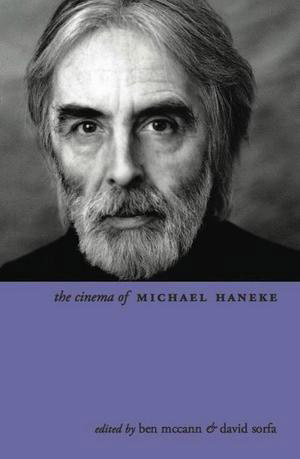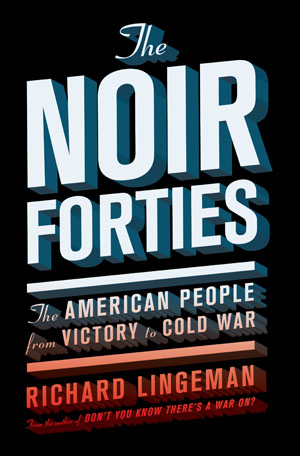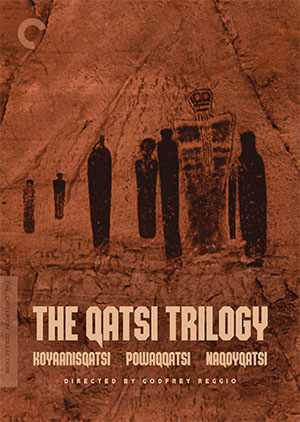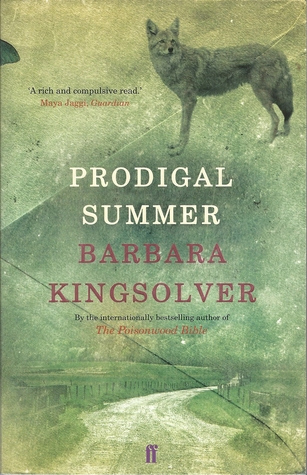This is the season not only for lists and awards but for transitions as well. Karina Longworth has announced that, after three years as the LA Weekly‘s Film Editor/Critic, she’s stepping down as a staff writer. She’ll carry on freelancing, but she’d like to broaden her beat, and if her piece on music and cultural critic Ellen Willis for Slate is any indication (as I’m sure it is), we’ve got a wide range of rich writing to look forward to. In the short term, I’ll miss Karina’s reviews, particularly her dispatches from festivals like Sundance and Cannes, from which she’s sent out some of the most insightful first impressions of the films we’re all most anxious to hear about the moment the credits roll on those first press screenings. In the long term, though, having completed George Lucas, out from Phaidon earlier this fall, she’s working on another book; let’s hope we’ll be able to put it on our wishlists this time next year.
The Voice and LA Weekly have Scott Foundas coming in, of course. He’s tweeting now, if you haven’t heard, and alerting us to the fact that Michael Cimino is not. Tweeting, that is.
“After 15 years of employment at The A.V. Club, eight as editor, Onion Inc. and I have come to a mutual parting of the ways,” Keith Phipps announced last week. “And so, moving on: Veteran writer and editor seeks new challenges.” Among the clips he links to are two pieces for—how about this?—Slate, one on “the strange path to the film version of Howard the Duck“—George Lucas again—and the other chronicling a journey along the path of Easy Rider.
In other news. “Wim Wenders announced Friday the creation of a foundation in his native German city to ensure his work is publicly accessible and to support young filmmakers,” reports France 24. The first order of business will be to “buy the rights to all his movies by the end of this year for around 1.8 million euros ($2.4 million).” Perhaps we can look forward to a restoration and release of the full director’s cut of Until the End of the World (1991)?
Reading. As I mentioned in last week’s entry on Amour, there’s a new Senses of Cinema out, and it includes a book review I probably should have wrapped into that Amour roundup. The 21 essays editors Ben McCann and David Sorfa gather in The Cinema of Michael Haneke: Europe Utopia collectively cover “all ten of Haneke‘s feature films prior to Amour and also contains welcome discussion of his work in television, which has received far less scholarly attention,” notes Richard Martin.
On a related note, Film International has just posted “(Pro)creative Encounters: From Photo-Painting to Video-Film,” an essay by Jonathan Rozenkrantz that eventually works its way here: “The problem with Haneke’s Brechtian formula is that, on an affective level, none of his videographic intrusions really function as distancing effects. Just as the video image in Benny’s Video pulls us further into the affective fabric of the video-film, breaking the cinematic rules in Funny Games is more likely to intensify our experience. If anything, the violence becomes even more frustrating once we realize that the villains have the power to protrude the diegetic frame, because this is when we also realize that Haneke’s violence is directed primarily at us. He shuts us up, alright; not because he makes us aware of our compliance with the killers, but because he transforms us from witnesses to victims.”
Back to the new Senses, though: More book reviews, a special dossier on “Tasmania and the Cinema,” festival reports and program notes, plus Darren Hughes‘s conversation with Nicolas Rey, Angelos Koutsourakis on Shirley Clarke, Philip Cartelli on Marcel Hanoun, Philip Brophy on Kôji Wakamatsu, Wendy Haslem on the 2011 restoration of Georges Méliès‘s Trip to the Moon (1902), Robert Alpert on James Gray, John Conomos on Andrew Sarris, and more.
There’s also a new Brooklyn Rail whose centerpiece is an extensive discussion of the current state of art criticism. Also: Jason LaRivière on Rick Alverson’s The Comedy, Rachael Rakes on this year’s CPH:DOX, and Leo Goldsmith on Criterion’s A Hollis Frampton Odyssey, a “long overdue” collection of over two dozen films: “Second only to his wit, Frampton’s unique erudition placed him—literally and figuratively—in the company of Ezra Pound, John Cage, and Marcel Duchamp.”
The new issue of Interiors analyses one of the most famous scenes in Woody Allen’s Manhattan (1979).
You’ll have noticed that 2012 has been quite the year for Alfred Hitchcock. “Having known Mr. Hitchcock for nearly twenty years, I would say that he’d no doubt be vastly amused by the whole spectacle,” writes Peter Bogdanovich, introducing the first round from his collection of notes he’s taken on the films over the years.
Ted Fendt has translated a 1959 piece for Cahiers du cinéma on André Bazin by Jean Renoir.
For frieze, Nicolas Linnert reviews a recent survey exhibition at 80WSE of work by Tony Conrad.
For the New York Times Book Review, Nathan Heller reviews David Thomson‘s The Big Screen and Molly Haskell takes on Margaret Talbot’s The Entertainer: Movies, Magic, and My Father’s Twentieth Century and Richard Lingeman’s The Noir Forties: The American People From Victory to Cold War: “These ambitious works of cultural history are in no way a forced pairing.” Both books “examine political and sociological shifts in America at large, viewing Hollywood as a generator of dreams that at once mirrors and shapes the collective unconscious—as well as a company town run by despotic bosses.” And Salon‘s running an excerpt from The Noir Forties.
In MUBI’s Notebook, Hoi Lun Law examines camera movements in the work of Truffaut and Tsai Ming-liang.
“Film Studies For Free is delighted to pass on news of the publication of an open access version of a wonderful new book from Amsterdam University Press. Audiences: Defining and Researching Screen Entertainment Reception is an extremely high quality collection edited by Ian Christie, Professor of Film and Media History, at Birkbeck, University of London.” Catherine Grant also points us to the new issue of Participations, “the excellent online journal of audience research.”
Interviews. Three of them, all highly recommended. Jessica Kiang talks with James Gray not only about his forthcoming film Lowlife but also about “the troubling disappearance of ‘the middle,'” which has set off some thoughts from Richard Brody.
William Klein: Films, 1958-99 is on view at Tate Modern through January 20, and for Sight & Sound, Brian Dillon talks with Klein “about his films of the past 50 years… Klein is 84 and nowadays he sounds slightly more like a New Yorker than the adoptive Parisian who so memorably voiced the English-language version of Chris Marker‘s La Jetée in 1962.”
And Aaron Cutler has a good talk with Abbas Kiarostami for Idiom.
DVD/Blu-ray. James Marsh for Twitch: “Eureka Entertainment’s connoisseur label, Masters of Cinema, has just announced a new batch of titles hitting UK Blu-ray and DVD in March and April of next year, including fantastic new restorations of films by New Wave auteur Claude Chabrol, Italian maestro Michaelangelo Antonioni and French supremo Henri-Georges Clouzot, as well as Japanese masters Kawashima Yuzo and Yamanaka Sadao.”
The Austrian Film Museum has just released James Benning’s California Trilogy.
For Slant, Chuck Bowen reviews Criterion’s release of Godfrey Reggio’s Qatsi Trilogy—Koyaanisqatsi (1983), Powaqqatsi (1988), and Naqoyqatsi (2002)—an “extensive and virtually flawless presentation of one of American cinema’s most fascinatingly singular achievements.” Criterion’s running essays on the trilogy by Bill McKibben, Scott MacDonald, and John Rockwell, and Sam Smith‘s posted an entry documenting the process that led to his design of the package. Sam‘s also participating in Alternate Ending, a show at New York’s Bottleneck Gallery “celebrating movie endings that never were, or that only exist in our imaginations.”
Criterion’s also posted Scott Foundas‘s essay on Christopher Nolan’s Following (1999), “a most auspicious debut still little known outside of a small cult of admirers,” as well as a clip of Nolan chatting about its making.
New York. Jonas Mekas turns 90! On Christmas Eve, that is, but Anthology Film Archives is launching its week-long celebration today with a series that includes the NYC premiere of My Paris Movie. At Artinfo, J. Hoberman, too, is celebrating “the breadth of Jonas Mekas’s achievement. The founder or co-founder of Film Culture magazine, the Filmmaker’s Distribution Center, the Filmmaker’s Coop, the Filmmaker’s Cinematheque, and Anthology Film Archives, Jonas was the Village Voice‘s original film editor and, as its first film critic, a blogger avant la lettre…, as well as a poet, a diarist, an archivist, an exhibitor, an agitator, a networker, a publicist, a champion, and an astonishingly prolific filmmaker.” The Mekas retrospective at Serpentine Gallery in London rolls on through January 27.
Filmmaker‘s “25 New Faces of Independent Film” are being heralded with a week-long series of screenings at reRun Gastropub Theater, and Nick Dawson‘s got your overview.
In the works. “Peter Greenaway is planning a film about the Romanian-born sculptor Constantin Brâncuși (1876-1957),” notes Graham Fuller at Artinfo. “According to FilmNewEurope.com, it is currently titled Brâncuși From Bucharest to Paris and will follow the epic journey taken by the 28-year-old artist in 1904. He is said to have walked most of the way to Paris, traveling from Romania via Budapest, Vienna, Munich, Zurich, Basel, and Langres, supporting himself as a farm laborer en route.”
Corneliu Porumboiu has wrapped shooting on A Nine-Minute Interval, reports Iulia Blaga, also at Filmneweurope. Ioncinema‘s Eric Lavellee: “The logline I’ve managed to piece together is short and sweet, but this tells the story of Paul (Bogdan Dumitrache—The Death of Mr. Lazarescu, How I Celebrated the End of the World, Loverboy, Best Intentions), a young filmmaker apparently working with the digital format.”
Ben Wheatley’s Rook Films will produce Peter Strickland’s The Duke of Burgundy, reports Charlie Schmidlin at the Playlist. Strickland’s latest is, of course, Berberian Sound Studio, while Wheatley, fresh off Sightseers, is already wrapping up work on A Field in England.
“Hayao Miyazaki’s first film in five years—a wartime romance—will be released next year,” reports the Telegraph. Kaze Tachinu, based on the novel of the same name, is “usually translated as ‘The Wind Has Risen.'”
“Sundance Institute has selected 12 projects for its 2013 January Screenwriters Lab, an immersive, five-day (January 11-16) writers’ workshop at the Sundance Resort in Utah.” And one of the projects is Prodigal Summer, based on the novel by Barbara Kingsolver, to be co-written by Kingsolver and Nicole Kassell.
Oren Moverman (The Messenger, Rampart) and Anthony Swofford (Jarhead) have developed a drama for HBO, “the ironically titled Laughs Unlimited, an hour-long program that will tackle the issue of war vets returning from the Middle East with post-traumatic stress disorder,” reports Oliver Lyttelton for the Playlist.
Viewing. Cinephilia & Beyond has collected episodes of the legendary French television series Cinéastes de notre temps (Filmmakers of Our Time). Among the subjects: John Cassavetes, Abel Ferrara, Jean Vigo, Luis Buñuel, Martin Scorsese, David Lynch, Samuel Fuller, and John Ford.
Catherine Grant‘s gathered more videos of talks on the work of Michelangelo Antonioni.
More browsing? John Wyver‘s got plenty.
Lists and Awards 2012: Index. For news and tips throughout the day every day, follow @KeyframeDaily on Twitter and/or the RSS feed. Get Keyframe Daily in your inbox by signing in at fandor.com/daily.

